Uniting for Maternal and Child Health: 16 African and Asian countries visit China
South-South cooperation in action
- Available in:
- 中文
- English
Inside the ‘kangaroo care’ room at the Maternal and Child Health Hospital of Guangxi Zhuang Autonomous Region (Guangxi MCH Hospital), an atmosphere of warmth and tenderness enveloped mothers cradling their prematurely born babies. Soft light filtered through yellow curtains, creating intimate spaces for mothers to bond with their little ones. Babies’ transitions from incubators to their mothers’ embrace were made safe with rigorous disinfection routines.
Emotions welled up as mothers shared their journeys. Tearfully, one mother said, "The bond with my second child is truly moving. Having my baby lying on my chest fills me with an overwhelming sense of love." Another spoke of the professional and emotional support from hospital staff, serving as a soothing remedy amid the anxiety of caring for a premature infant.
Aligned with its commitment to strive for a world where no child dies from preventable diseases and all children thrive in health and well-being, UNICEF China, in partnership with UNFPA China and the National Centre for Women and Children’s Health of the National Health Commission, invited delegates from 5 countries in ASEAN and 11 African countries[1] for a study visit on maternal, newborn and child health (MNCH) under the South-South cooperation framework in Nanning, China, in November 2023.
The visit provided insights into China’s health care system, as well as opportunities to share experiences from Africa and Asia. Delegates explored the Guangxi MCH Hospital and the Qixing Community Health Service Centre, which typifies China’s community-based health care.
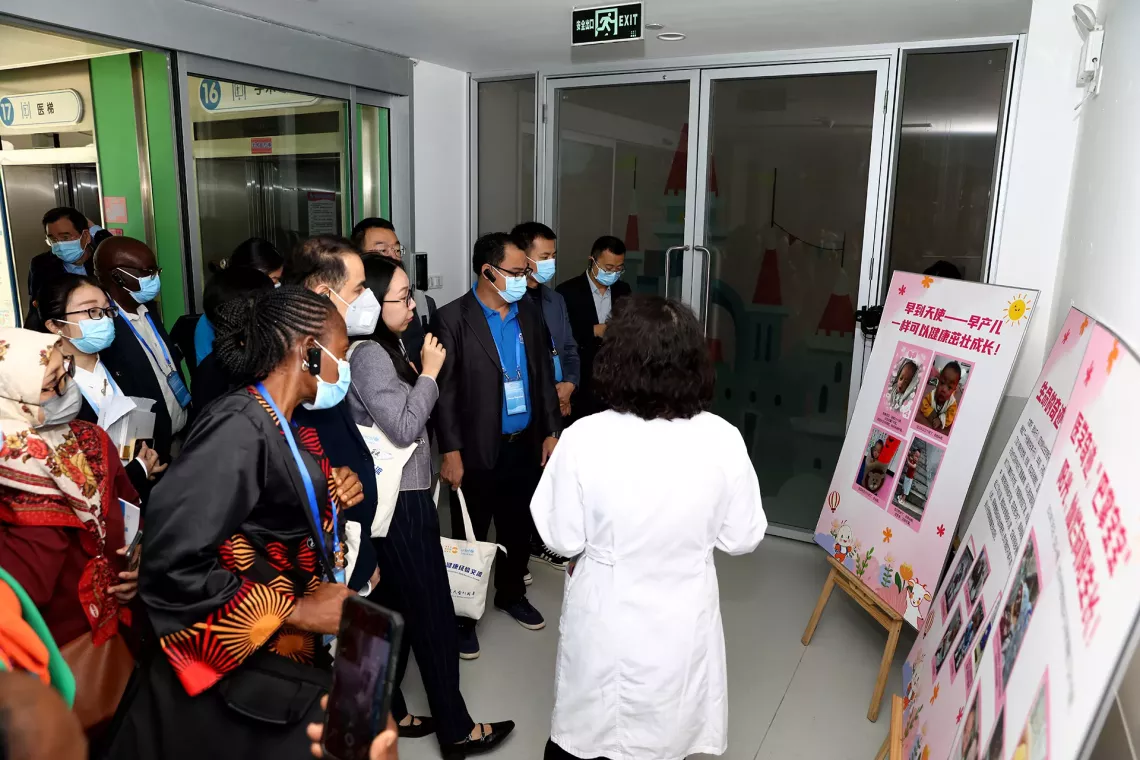
A medical staff member from the Neonatal Medical Centre at Guangxi MCH Hospital acknowledged UNICEF’s efforts in improving their skills, saying, "The Early Essential Newborn Care (EENC) training programme enhanced our capacity to provide a high-quality service, especially on how to improve counselling skills, build trust and support the mental health of expectant mothers."
UNICEF, in collaboration with the National Health Commission and other key national-level partners continues to accelerate the delivery of services to reduce preventable deaths of children. The NHC-UNICEF EENC programme now covers all 31 provinces, municipalities, and autonomous regions across the Chinese mainland. The Guangxi MCH Hospital is one of five pioneering medical institutions selected to be a demonstration and training centre.
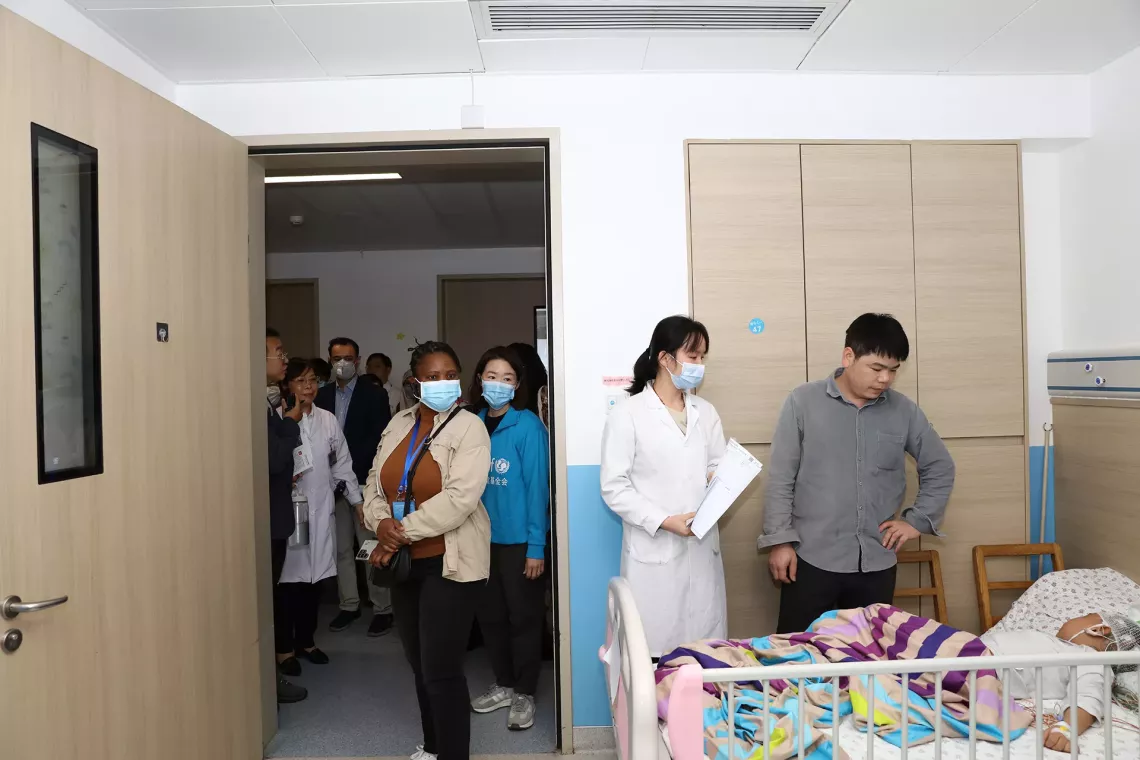
Laying a foundation for further cooperation
China's rapid expansion of public health infrastructure and community-based systems has been instrumental in achieving several Sustainable Development Goal (SDG) 3 targets, notably in reducing child, neonatal, and maternal mortality, providing learning for nations facing challenges in these areas. Current trends suggest that globally around 40 million children under the age of 5 will die before 2030, with newborns accounting for half of these deaths. A significant majority of these deaths - 24 million - will likely occur in sub-Saharan Africa.
Community health centres like the one in Qixing emphasize the significance of preventive measures within China's three-tier health care system. Lan Fengyang, Director of the Service Centre, highlighted their preventive approach, saying, "In the community, our focus isn't solely on treating illnesses; it's about preventing them. This will help to keep patients at the basic level of health care, ease the pressure on larger health care facilities and address patients’ specific needs.”
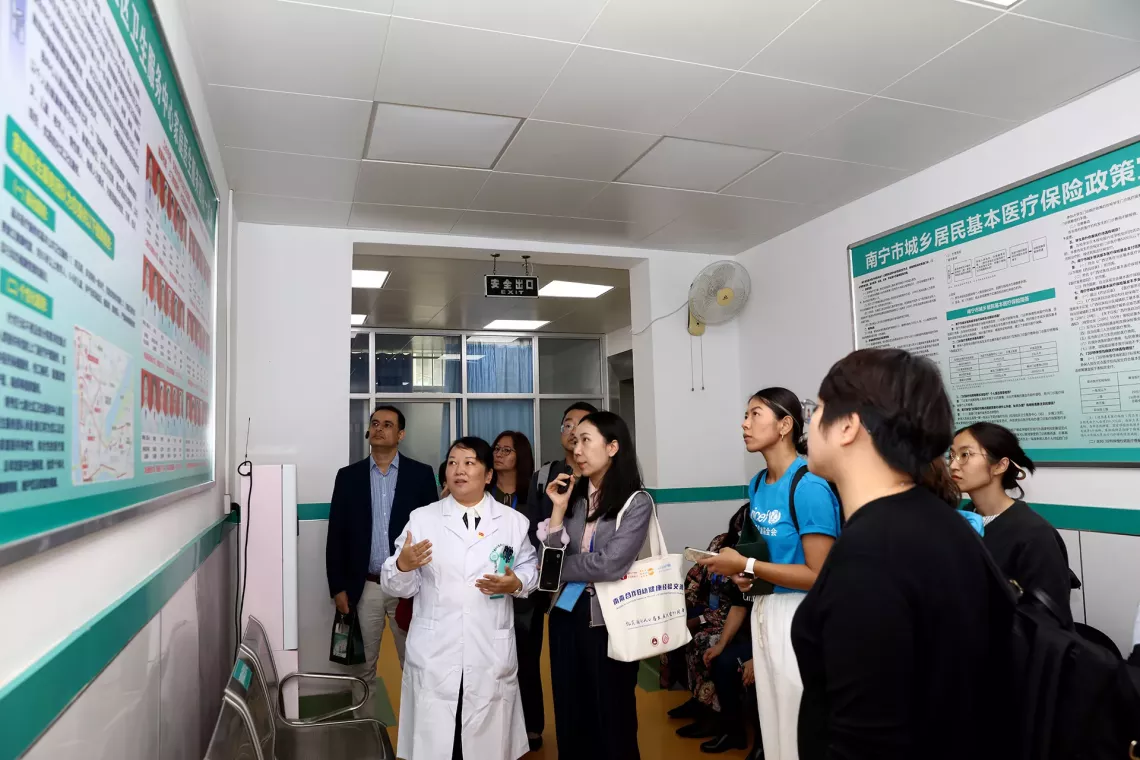
Delegate Tiyese Chimuna, Health Manager of UNICEF Ethiopia, commended the centre's postnatal care strategies, which would bridge crucial health care gaps in Ethiopia. She said, “The community hospital is able to do home visits for postnatal care, and they can get information on mothers who require this service through the existing health management information system.”
Meanwhile, Senior Public Health Nurse Mariama Momoh, from Sierra Leone, highlighted the challenges of access to organized digital systems for health care information in her country.
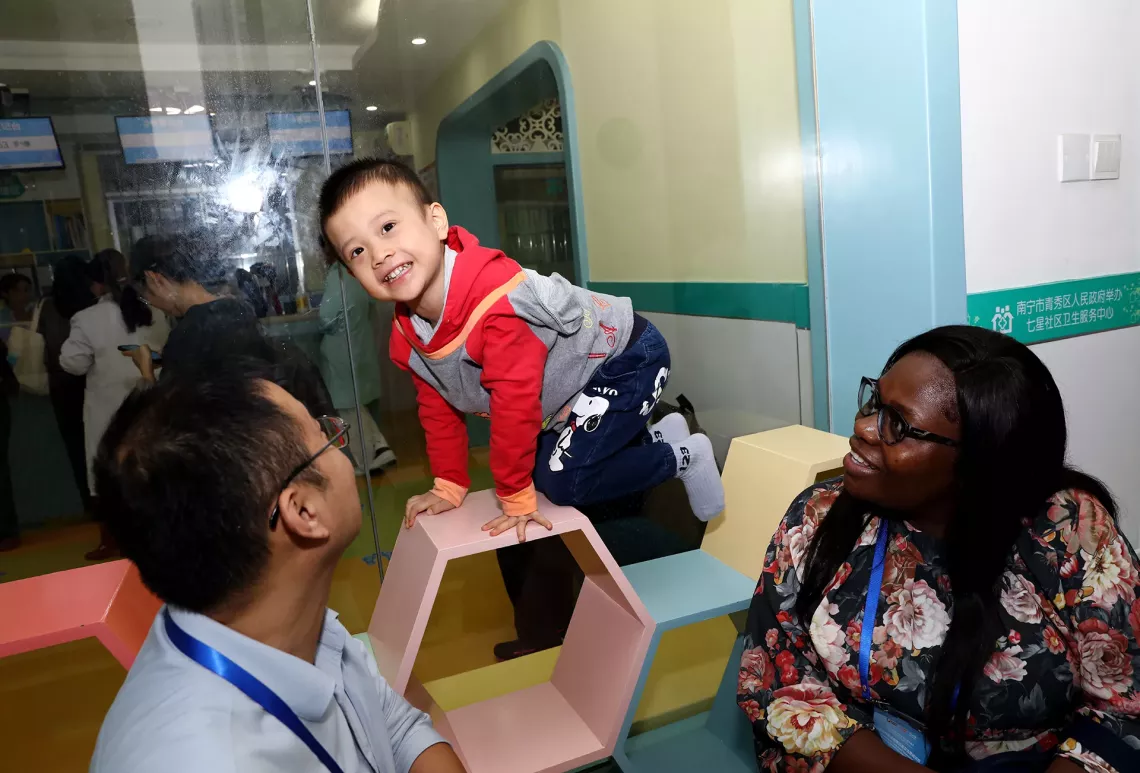
UNICEF is saving mothers’ and babies’ lives through projects funded by China
In 2020, the Government of China partnered with UNICEF and Ministries of Health in eight African countries, D.R. Congo, Ethiopia, Kenya, Niger, Nigeria, Sierra Leone, Sudan, and Zimbabwe, to improve the delivery of primary health care for pregnant women and newborns through projects funded by China’s Global Development and South-South Cooperation Fund (GDF). The eight projects rehabilitated health centres and maternity wards and provided life-saving supplies, equipment and technical training to boost the capacity of health workers to deliver quality, high-impact services.
“We've collaborated with UNICEF to develop the MNCH package and train health care providers for postpartum MNCH. Now the focus is scaling up involvement across health centres and hospitals,” said Senior Public Health Nurse Pity Florence Kanu, a delegate from Sierra Leone.
Dr. Wenceslas Nyamayaro, Acting Chief Director of Public Health, Zimbabwe’s Ministry of Health and Child Care, underlined the impact of the GDF-supported project in his country. "There have been many trainings provided by UNICEF, such as in BEmONC (Basic Emergency Obstetric and Neonatal Care). There has been a decrease in maternal mortality because of the funds accessed from the Cooperation.”
In Zimbabwe, the proportion of deliveries attended by skilled health personnel increased from 78 per cent to 90 per cent in the project areas.
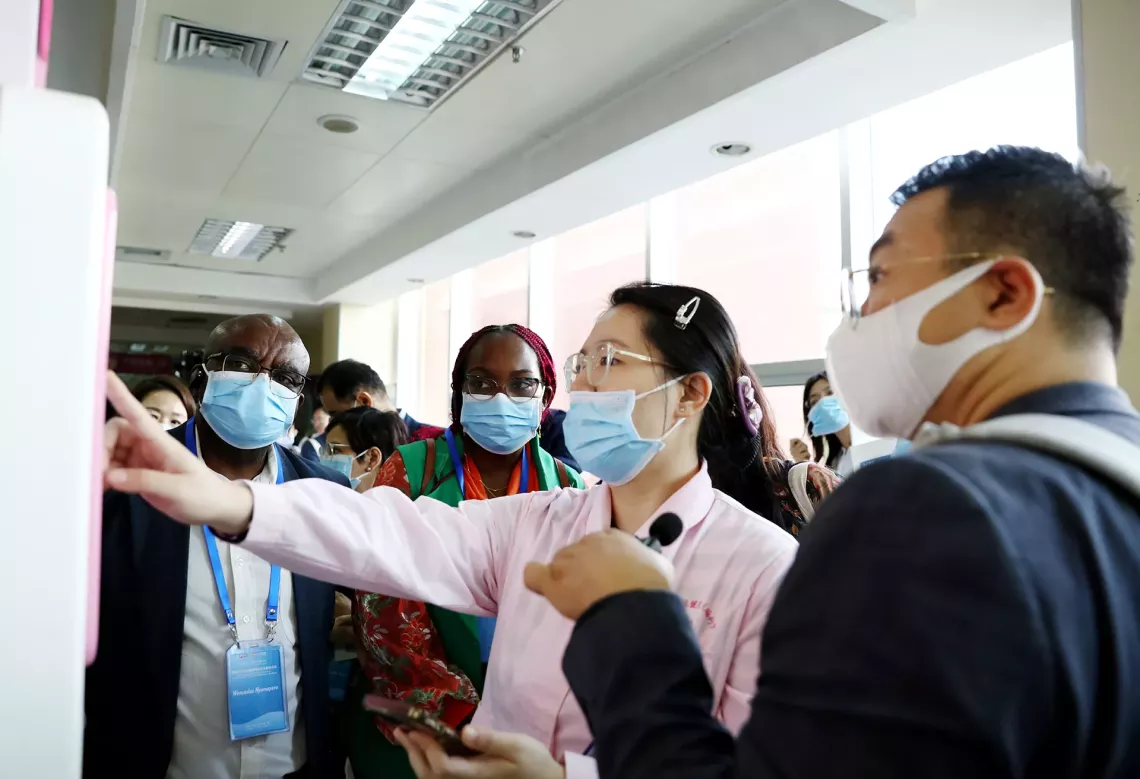
The next step: exchanging knowledge, technology and innovations
“We look forward to more support from China and UNICEF, including ongoing supervision and evaluations of trainings, technological implementations, and sustained capacity building in maternal and child health," stressed Ms. Pity Florence Kanu from Sierra Leone, following the visit.
South-South cooperation has potential to address key development challenges. Exploring the opportunities for all parties and identifying critical areas of collaboration remains crucial as the journey toward maternal and child health progresses.
Dr. Guo Sufang, Chief for Health, Nutrition, and WASH (Water Sanitation and Hygiene) at UNICEF South Africa said, "Beyond this visit, we need to emphasize research, evidence generation, and innovative health care technology to execute plans effectively," after stressing UNICEF's role in facilitating government collaborations and achieving efficient health care management strategies to address high maternal mortality rates.
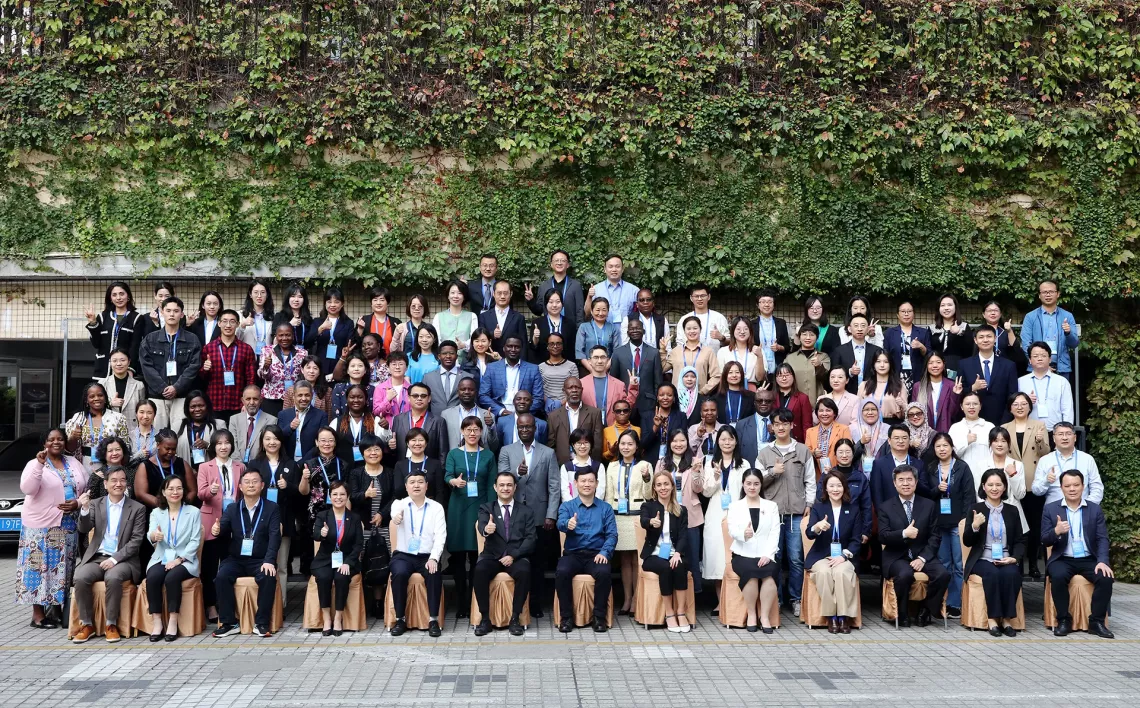
UNICEF is discussing new project plans with the Government of China. Future projects will continue to provide life-saving supplies, equipment, and medicines, while strengthening local capacities through trainings and innovative modalities to achieve a more sustainable impact.
“We are committed to building an open platform on which we can develop South-South cooperation and triangular cooperation and pull up crucial resources from governments, NGOs, and professional MCH institutions. On this platform, China's experiences matter as much as those of partner countries,” said Ms. Wang Jian, Deputy Director General of International Health Exchange and Cooperation Center, National Health Commission. She also expressed her belief that all relevant stakeholders will be more active and open to building a sustainable ecosystem for exchanges and cooperation.
[1] The 16 countries invited to a study visit for South-South cooperation on maternal and child health are Brunei Darussalam, the Central African Republic, Ethiopia, the Gambia, Guinea-Bissau, Lao PDR, Malaysia, Mauritania, Namibia, the Philippines, South Africa, Sierra Leone, Tanzania, Thailand, Uganda, and Zimbabwe.

